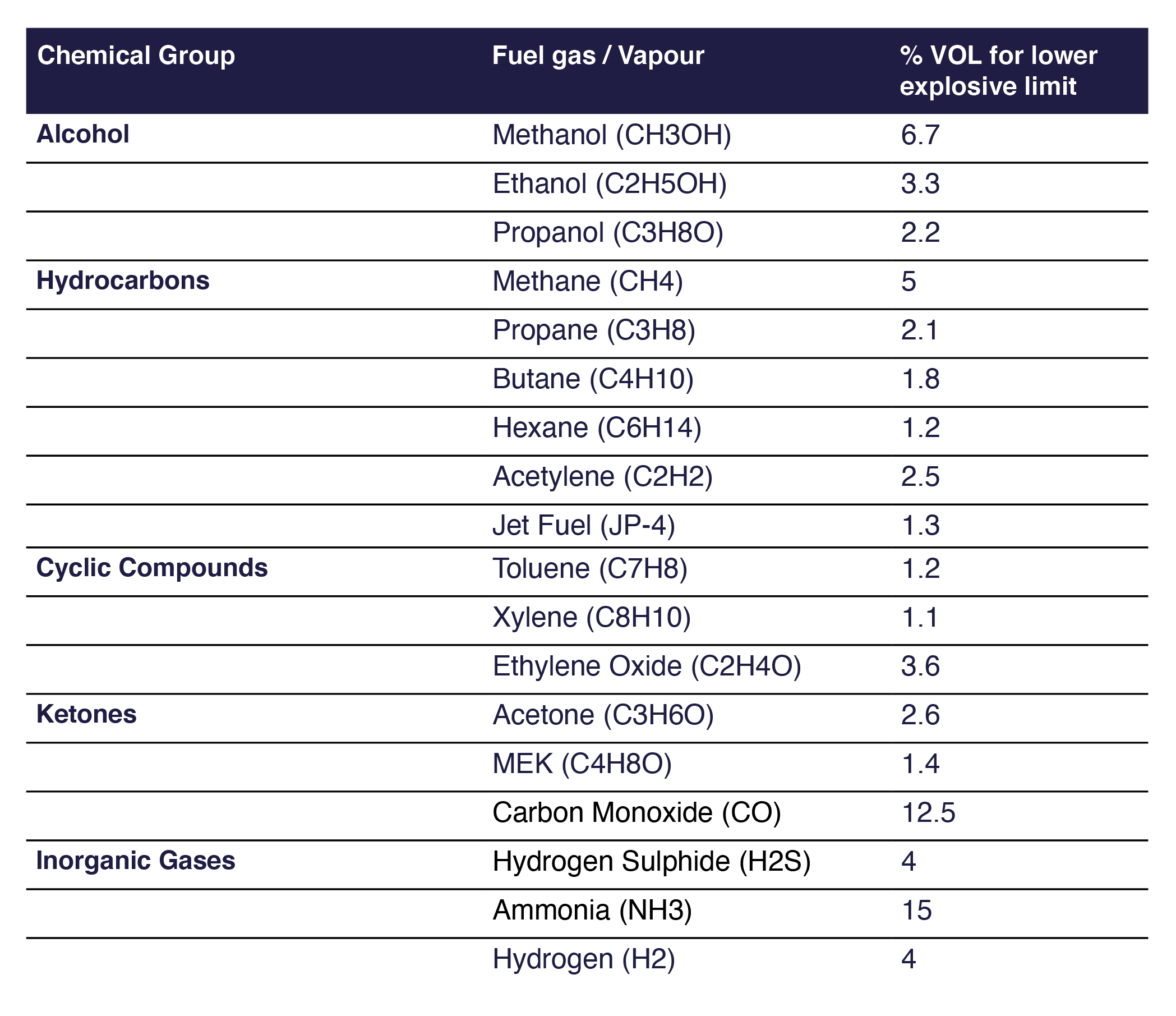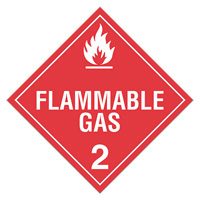
Credit: www.internationalgasdetectors.com

Credit: www.ilpi.com
What are Flammable Gases?
Flammable gases are substances that can ignite and burn when exposed to an ignition source. These gases are highly reactive and can easily catch fire in the presence of oxygen, heat, or a spark. In this article, we will explore the characteristics of flammable gases, their uses, and safety precautions to prevent accidents involving these substances.
Characteristics Of Flammable Gases
Flammable gases have specific properties that distinguish them from other types of gases:
- Highly volatile: Flammable gases evaporate quickly at room temperature, forming vapors that can easily ignite.
- Low ignition energy: These gases require low amounts of energy to initiate combustion, making them highly flammable.
- Wide flammability range: Flammable gases can burn in a broad range of concentrations with oxygen, allowing them to ignite at various mixtures.
Common examples of flammable gases include hydrogen, propane, methane, butane, and acetylene. These gases are commonly used in various industries and can also be found in certain household items.
Uses Of Flammable Gases
Flammable gases have numerous industrial applications, mainly due to their combustible nature and high energy content. Some common uses include:
| Gas | Uses |
|---|---|
| Hydrogen | Used in fuel cells, welding, and as a rocket propellant. |
| Propane | Used as a fuel source for heating, cooking, and powering vehicles. |
| Methane | Used as a primary component of natural gas for heating and electricity generation. |
| Butane | Used in lighters, aerosol propellants, and as a fuel for camping stoves. |
| Acetylene | Used in welding and cutting applications. |
While flammable gases offer significant benefits in various industries, they can also pose serious risks if mishandled or improperly stored.
Safety Precautions For Handling Flammable Gases
Due to their volatile nature, it is crucial to follow strict safety precautions when handling flammable gases:
- Store in designated areas: Flammable gas cylinders should be stored in well-ventilated areas away from ignition sources and heat.
- Ensure proper ventilation: When working with flammable gases, ensure the workspace has adequate ventilation to prevent the buildup of potentially explosive vapors.
- Use proper equipment: Employ appropriate containers, regulators, and hoses specifically designed for the type of flammable gas being used.
- Handle with care: Avoid dropping or mishandling gas cylinders, as this can lead to leaks or ruptures.
- Ignition source precautions: Keep flammable gases away from open flames, sparks, or electrical equipment that can trigger a fire.
- Use personal protective equipment (PPE): Wear safety goggles, gloves, and flame-resistant clothing to protect against potential hazards.
- Follow proper procedures: Adhere to established protocols for gas handling, storage, and disposal to minimize the risk of accidents.
- Train employees: Provide comprehensive training to employees working with flammable gases to ensure they understand the potential hazards and necessary safety measures.
By following these safety measures, the risks associated with handling flammable gases can be significantly reduced, creating a safer work environment.
In Conclusion
Flammable gases are substances that can ignite and burn easily when exposed to an ignition source. They possess specific characteristics that make them highly reactive and combustible. While these gases have many industrial applications, it is essential to handle them with caution and adhere to safety protocols to prevent accidents.
Proper storage, ventilation, and the use of appropriate equipment are crucial when working with flammable gases. By following safety precautions and providing adequate training to employees, potential risks can be minimized, leading to a safer work environment in industries utilizing these substances.
Frequently Asked Questions Of What Are Flammable Gases
What Are Flammable Gases And How Are They Dangerous?
Flammable gases are substances that can ignite and burn in the presence of oxygen. They are dangerous because they can cause explosions, fires, and asphyxiation.
Which Common Household Items Can Produce Flammable Gases?
Common household items that can produce flammable gases include propane tanks, aerosol sprays, gasoline, and natural gas.
How Can You Safely Store And Handle Flammable Gases?
To safely store and handle flammable gases, keep them in well-ventilated areas away from heat sources, use proper storage containers, and follow all safety instructions provided by the manufacturer.
What Precautions Should I Take When Using Flammable Gases Outdoors?
When using flammable gases outdoors, ensure proper ventilation, keep them away from open flames or sparks, and avoid smoking or using electrical devices near the gas source.
